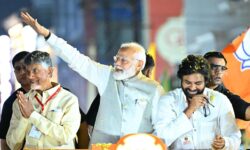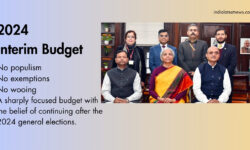LIVING TOGETHER IS FREEDOM
As a resident of India, from our childhood education we were taught unity in diversity (विविधता में एकता) and fraternity (भाईचारा). I was born & brought up in the national capital of India i.e. New Delhi. I used to see people from different states, different countries visiting Delhi & its tourist spots. They were sometimes funny, strange, awkward & lovely. I loved to observe them & wanted to talk but was afraid of talking to them. So what was the problem, why was I afraid? Once I asked my teacher this question, she said “it’s a fear of not knowing” & truly I didn’t understand what she meant. Later during my secondary schooling (10th class), me & my friends were out visiting Humayun’s tomb (an old monument famous for its architecture in Delhi), There we saw some foreigners, one of my friend was learning a foreign language, we forced out that friend to go & talk to them, what I observed was that the foreigners were so polite & happy. There gesture shows positive sign, at that time I understood the importance of language, communication, interaction and understood ‘the fear of not knowing’. That was a life-changing experience, after that incident I started to communicate with different people & learn many things from them.
Fear of not knowing: a child is dependent on its parents; he is treated as recessive being & dominated by parents and teachers. He has to obey his parent and teachers. And when he thinks about unknown, he (the child) treat that unknown as dominant. A psychological phenomenon occurs here; the child is treated as recessive, so he considers himself as recessive, and if he is recessive then the unknown is automatically turned as dominant. Recessive fears from the dominant. This is as a child is fear of not knowing.
When we think of global citizenship, it is very difficult to acquire with egoistic leadership and self-centred world powers. I remember during my childhood whenever I picked a fight with my mates my parents, teacher used to put restriction on me & my mates with whom I fight, but at the same time I got freedom of playing, spending time, sharing my food, sharing books, sharing everything with my other mate with whom I had peace, good bonding i.e. my best friend. With this incident of my childhood I learnt that LIVING TOGETHER IS FREEDOM. The leaders of world, great economy powers, and great military powers need to understand this. After seeing history of great wars, world wars, cold war, they need to understand that there is no other way of sustenance other than living together, living in peace. When we keep fighting with each other someone will put restriction on us and at the end we all will lose, but if we live together in peace we all will win always.
I give an example of this in terms of INDIAN relationships with its neighbours. World knows about India-Pakistan conflicts & wars, a citizen of India traveling to Pakistan has to go through various security check, unwanted questions & many more difficulties and same in the case of a Pakistan national travelling to India. But in the case of Bangladesh or Nepal we don’t observe that hardship in procuring a passport-visa to travel. Countries like Bangladesh, Nepal have friendly relation with India so we can travel freely but not in the case of Pakistan. But at the same time a Pakistan-born singer Adnan Sami got citizenship of India, because he is loved and accepted in India.
Sometimes people think that Multi-National Companies are contributing to global citizenship but that is a fallacy. These MNCs may have base around the world, but they are there for a business, making profits, not to make peace, they may like a culture but may not help in its sustenance. There can be individuals who are good human beings and helpful but ultimately the main aim of a business is to make profits. They can do anything to make more profits. Few people get a chance to migrate around the world with the help of these MNCs & other means, that does not represent their global citizenship and if a person travels to another country & faces discrimination, then how can we think of global citizenship?
Global citizenship is not about migrating, it’s about acceptance & recognition, so from where this acceptance & recognition comes. The very basis of human sustainability is living in groups i.e. community or society. So we need is acceptance & recognition of one society by other society & vice versa. This can be possible with the help of language, communication, culture and education.
In India there are almost 1652 spoken languages, 86 different scripts, over 6 major religions which are divided into 1.22 billion people having different Behaviours, Ethnicity, Beliefs and Tradition. Irrespective of these diversities, we believe in each other, we respect & accept each other. If we can accept each other then why can’t world powers accept each other? Another great example of acceptance & recognition is a great Bengali writer; Rabindranath Tagore (Indian to win the Nobel Prize for literature “Geetanjali” in 1913) is the only writer in the world whose work is used as the national anthem of three countries- INDIA, BANGLADESH and SRI LANKA.
Culture & education plays an important role in the development of any society or nation. It represents a set of shared attitudes, values, goals and practices. Culture and creativity manifest themselves in almost all economic, social and other activities, so does in globalization process. Culture binds societies and helps people overcome divisions. It is a country’s life & blood, no less important than a nation’s health or wealth.
A country as diverse as India is symbolized by the plurality of its culture. India has one of the world’s largest collections of songs, music, dance, theatre, folk traditions, performing arts, rites and rituals, paintings and writings that are known, as the ‘Intangible Cultural Heritage’ (ICH) of humanity which are enjoyed & studied worldwide. This represents the acceptance of Indian society by other societies of world. A great example of cultural traffic is THE ART OF LIVING (www.artofliving.org), which organised world culture festival in New Delhi recently. The World Culture Festival, where around 3.5 million people, musicians, singers, dancers, and performers participated from all over the world and show how culture and diversity can serve the needs of mankind.
Education also plays important role in the development of society. Education is not just academic studies; it is the discovery of new things, being conscious, Social & emotional learning. It Increases self-awareness, social awareness, improves self-management, improves relationship skills, and nurtures responsible decision making. Education is the most powerful weapon which can be used to change the world. Education can teach the world that freedom is living together, enable other ideas to emerge, and allow them to learn to live alongside one another and to act wisely is to act with proper understanding & good attitude. Education promotes multilingual ability, cultural reciprocity, and increase in cultural traffic.
Globalization is not just about trade around the world, having diplomatic relationship, migrating, or learning foreign languages, it is more than that , let us consider earth as a big home, where a big joint family happily live together having individual with different etiquettes, different professional background, different vocabulary skills, different height & weight, different hairstyles & many more physiological difference, then irrespective of differences between individual, every individual is entitled to that home because they share each other responsibilities, they respect each other, they love each other and there is acceptance of each other. When we all human live together with our differences then only we can say we are globalised.
We, the new generation always talk about being globalised in respect of procuring a citizenship of any other country; this may provide a citizenship of 2-3 countries but not global citizenship. Our aim should be to procure a global citizenship which is respect & acceptance of each other irrespective of discrimination in age, race, gender, military power or economic power. A potent culture/society always sees itself as superior to all the others, and forces other cultures to accept it as an example. Prejudices and biases exist everywhere, this can be checked, when we enjoy different language, culture including ours, when we understand the importance of rituals of different society and apply them to reform our society.
Only a globalised world can have global citizenship, for globalised world we need to make a universal image, universal understanding to stand as one world irrespective of different languages, ethnicity, beliefs tradition, religion and society. Let us take an example of a fruit- Mango
| MANGO | ENGLISH |
| आम | HINDI |
| Manguier | FRENCH |
| Mangobaum | GERMAN |
| Manja | ARABIC |
| 杧果 | CHINESE |
| Ampelam | INDONESIA |
| Amra | SANSKRIT |
| Mangifera indica | SCIENTIFIC NAME |
MANGO, Mangifera indica, आम, Manguier, Mangobaum, Manja, 杧果, Ampelam, Amra, one fruit which is known by different names in different languages, it does not matter what we call it, in which language we call it, what matters is the image of that particular fruit which we make in our mind. An image of universal fruit which is the king of all fruits, which is juicy, sweet & full of pulp enjoyed, liked and eaten all over the world. Similarly, there should be an image of universal acceptance of each other.
So, global citizenship is not about migration, it is about acceptance of each other, multilingual ability can play a major role in cultural understanding. For a globalised world we need free society that can be possible only when we understand that living together is freedom.

